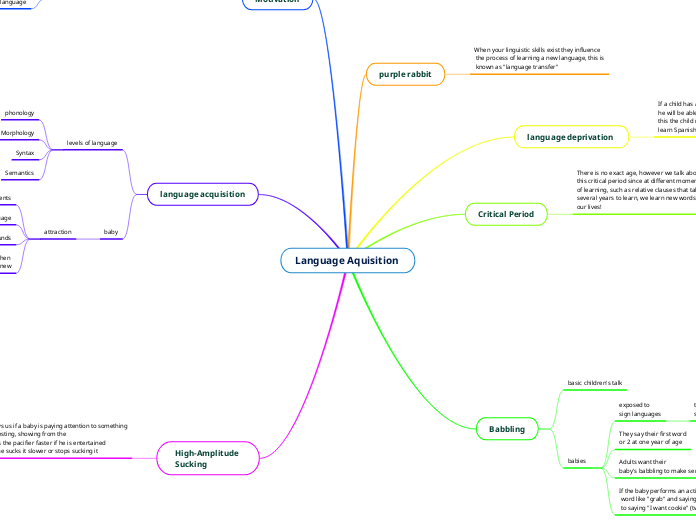by angel stiven sanchez hernandez 1 year ago
161
Language Aquisition

by angel stiven sanchez hernandez 1 year ago
161

More like this
Babies pay attention when they notice something new
language sounds
your same language
parents
inherited language
receptive
they babble in sign language